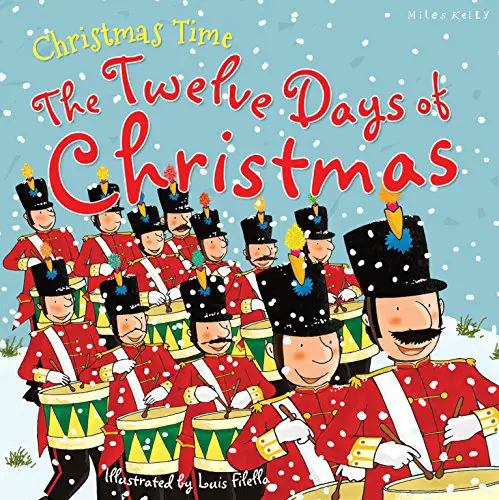What Is Epiphany? The Meaning, How to Celebrate, and the 12th Day of Christmas

Introduction
Epiphany, also known as Three Kings’ Day or Theophany in some traditions, is a significant Christian feast day that commemorates the revelation of Jesus Christ to the Gentiles, represented by the visit of the Magi (the Three Wise Men). Celebrated on January 6th, Epiphany marks the culmination of the Christmas season and holds deep spiritual and cultural significance across the globe. In this article, we will explore the meaning of Epiphany, its origins, traditions, and how it is celebrated, along with its connection to the 12th day of Christmas.
The Meaning of Epiphany

Biblical Roots and Significance
The term “Epiphany” comes from the Greek word epiphaneia, meaning “manifestation” or “appearance.” It refers to the manifestation of Jesus as the Son of God and Savior to the world. The primary biblical account associated with Epiphany is found in the Gospel of Matthew (Matthew 2:1-12), which describes the journey of the Magi following a star to Bethlehem. Their gifts of gold, frankincense, and myrrh symbolize Jesus’ kingship, divinity, and future suffering, respectively.
In addition to the Magi’s visit, Epiphany is also associated with two other significant events in Jesus’ life: His baptism in the Jordan River by John the Baptist and His first miracle at the wedding in Cana, where He turned water into wine. These events collectively emphasize the revelation of Jesus to the world.
Cultural and Theological Importance
Epiphany serves as a reminder of God’s universal salvation, extending beyond the Jewish people to all nations. It highlights themes of guidance, revelation, and the acknowledgment of Christ’s divine nature by those outside the traditional faith community.
The 12th Day of Christmas
What Is the 12th Day of Christmas?

The 12th day of Christmas, also known as Twelfth Night, marks the end of the twelve days of Christmas that begin on December 25th. It is traditionally observed on January 5th, the eve of Epiphany. In many cultures, Twelfth Night is a time of festivity, feasting, and the conclusion of holiday celebrations.
Connection to Epiphany
Twelfth Night transitions into Epiphany, symbolizing the arrival of the Magi and the revelation of Jesus to the Gentiles. It’s a time to reflect on the spiritual journey and the gifts we bring to honor Christ in our lives.
How Epiphany Is Celebrated
Global Traditions
Epiphany celebrations vary widely across cultures and Christian denominations. Here are some notable customs:
1. Western Christianity
In Western Christian traditions, Epiphany is often celebrated with special church services, processions, and the blessing of homes.
- France: The “Galette des Rois” (King’s Cake) is a popular tradition. A small figurine, representing the baby Jesus or a king, is hidden inside the cake. The person who finds it is crowned king or queen for the day.
- Spain and Latin America: “El Día de los Reyes” (Three Kings’ Day) is marked by parades and gift-giving, as the Three Wise Men are believed to bring presents to children.
2. Eastern Christianity
Eastern Orthodox and Eastern Catholic churches emphasize Jesus’ baptism during Epiphany. The feast is often called Theophany and includes the “Great Blessing of the Waters,” where holy water is sprinkled or distributed to the faithful.
- Greece: The “Blessing of the Seas” involves priests throwing a cross into the water, and swimmers compete to retrieve it as a symbol of purification and renewal.
3. United Kingdom and Ireland
In some parts of the UK and Ireland, Epiphany is known as “Little Christmas” or “Women’s Christmas.” Women are traditionally given a day off from household duties to celebrate with friends and family.
Home Celebrations
Epiphany can also be celebrated at home with family rituals, such as:
- Chalking the Door: A tradition where the year and the initials C, M, and B (representing Caspar, Melchior, Balthasar, or “Christus Mansionem Benedicat” meaning “Christ bless this house”) are written above doorways to bless the home for the coming year.
- Candlelight Gatherings: Families light candles to represent the light of Christ and share prayers or reflections on the meaning of Epiphany.
- Sharing a Meal: A festive meal or dessert, such as King’s Cake, is often a centerpiece of home celebrations.
Reflection and Spiritual Practice
The Themes of Epiphany
Epiphany invites Christians to reflect on:
- Guidance: The Magi’s journey following the star reminds us to seek God’s guidance in our lives.
- Revelation: The manifestation of Christ challenges us to recognize His presence in the world around us.
- Generosity: The Magi’s gifts inspire us to offer our best to God and to others.
Incorporating Epiphany into Daily Life
To make Epiphany meaningful in your life:
- Set aside time for prayer and meditation, focusing on the themes of the feast.
- Engage in acts of kindness or service, reflecting the spirit of the Magi’s generosity.
- Use symbols such as light and water in personal rituals to deepen your connection to the divine.
Conclusion
Epiphany is a rich and meaningful celebration that brings the Christmas season to a close while inviting believers to ponder the profound mystery of Christ’s revelation to the world. Whether through church services, cultural traditions, or quiet moments of reflection, this feast day offers an opportunity to renew faith, embrace community, and celebrate the universal message of God’s love. By understanding and engaging with its traditions, we can find inspiration to carry the light of Epiphany into our daily lives.



